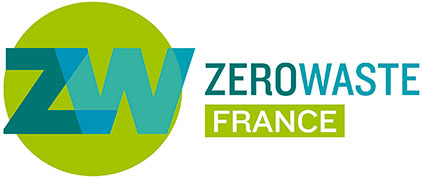Vision
We aim at defending an ambitious zero waste approach, considering source reduction as our main priority. Our vision is part of a global ecological transition, of Human Rights respect and of a better inclusion of the most disadvantaged populations and future generations.

Our production methods and consumption modes are no longer viable. On one hand, because they use more resources than the planet can sustain, putting a part of present and future humanity in a difficult position. On another hand, because they create polluting waste, even when they are properly collected (in France, a large majority is still incinerated or going to landfill).
It’s now time to create a paradigm shift to tackle both these issues. The zero waste approach goes beyond the traditional recycling, which is essential but not enough.
Producing differently
In order to reduce our waste, we have to start by modifying our production methods so that they become sober and efficient in their use of natural resources and energy, which will reduce the use of raw materials. Avoiding resources waste through eco-conception improvements will enable the shift from linear and toxic production methods to circular and resilient systems.

Optimising and expanding the usage
The use of property is limited or interrupted not because it is “out of order”, but because of our consumption modes. On the contrary, in a zero waste approach, we’re seeking to maximise the usage by reusing, sharing, pooling the access to goods. Regarding packaging, production methods based on “throwaway” are dropped for the benefit of reusing based systems (deposit, bulk sale, …).
Preserving materials
Composting and/or recycling enable to enhance materials as effectively as possible. This means that we need to separate, at the earliest possible stage, each waste stream and treat them separately. That is the separate management that enables, on the most locally possible geographical scale, to reduce the use of incineration and landfilling and to best preserve natural resources used in production process.
Lifestyle
The zero waste goal at home is often a great starting point towards the discovery of other green practices and the world of “home made” (Do-it-yourself), or a first step before more collective actions. Working towards zero waste on a daily basis is a challenge chosen, and met, by tens of thousands of people and families in France.
Professionals
In business, administration or any other institution, the extent of the zero waste approach will depend on the type of activity. From tertiary to industry, not to mention trade and hospital setting: in every area, there is a great flexibility for reducing consumption and waste. With, often, an economic benefit.
Territories
Local communities (municipalities, intercommunalities, …) organize the waste management at a territory scale. They can adopt a zero waste approach by putting in place field actions: sorting facilities for composting or biowaste methanisation, incentive-based invoicing as a waste sort and reduction factor, support to reusing actors, etc.
National and european politics
To take this forward, the zero waste approach needs to be supported by ambitious national and european politics. This enables the decrease of resources consumption, corporate responsibility regarding their products and the spread of waste recycling and reduction initiatives.
The zero waste approach is also …
Creativity and economic innovations
The zero waste approach has allowed the development of new activities around zero waste, showing that one can adopt a zero waste approach while continuing to live in a viable economic system. Some entrepreneurs innovate by developing products and services for zero waste. Collaborative platforms enable to facilitate the trade in goods and the reutilisation.
The eco-conception challenge
From the earliest stages of a product, work or service design, an eco-conceptor will take into account the impact assessment and the “ecological rucksack” of his project throughout its lifecycle, on the same basis as other parameters usually considered (economic, ergonomic, esthetic), while also ensuring that transfer of impact are not created. This approach is concerned about the materials used, fuel efficiency, the water consumption of the product, its manufacturing process, etc. One of the first companies in this area, Patagonia, has made it its trademark.
Social economy
Adopting a zero waste approach, it is also being part of a network and a community of committed people. Many associations and companies combining social, collective and ecological aspect have emerged. Therefore, the company Re-belle fights against food waste by collecting unsold fruits and vegetables in the supermarkets and by employing women in social reintegration.
